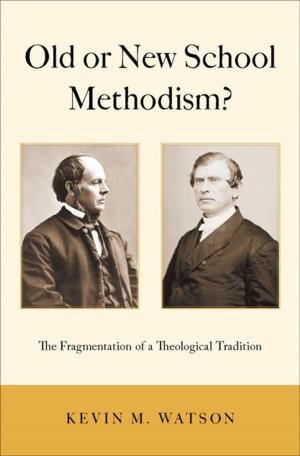Effortless Action
Wu-wei As Conceptual Metaphor and Spiritual Ideal in Early China
Nonfiction, Religion & Spirituality, Eastern Religions, General Eastern Religions, Philosophy, Eastern| Author: | Edward Slingerland | ISBN: | 9780199881444 |
| Publisher: | Oxford University Press | Publication: | March 27, 2003 |
| Imprint: | Oxford University Press | Language: | English |
| Author: | Edward Slingerland |
| ISBN: | 9780199881444 |
| Publisher: | Oxford University Press |
| Publication: | March 27, 2003 |
| Imprint: | Oxford University Press |
| Language: | English |
This book presents a systematic account of the role of the personal spiritual ideal of wu-wei--literally "no doing," but better rendered as "effortless action"--in early Chinese thought. Edward Slingerland's analysis shows that wu-wei represents the most general of a set of conceptual metaphors having to do with a state of effortless ease and unself-consciousness. This concept of effortlessness, he contends, serves as a common ideal for both Daoist and Confucian thinkers. He also argues that this concept contains within itself a conceptual tension that motivates the development of early Chinese thought: the so-called "paradox of wu-wei," or the question of how one can consciously "try not to try." Methodologically, this book represents a preliminary attempt to apply the contemporary theory of conceptual metaphor to the study of early Chinese thought. Although the focus is upon early China, both the subject matter and methodology have wider implications. The subject of wu-wei is relevant to anyone interested in later East Asian religious thought or in the so-called "virtue-ethics" tradition in the West. Moreover, the technique of conceptual metaphor analysis--along with the principle of "embodied realism" upon which it is based--provides an exciting new theoretical framework and methodological tool for the study of comparative thought, comparative religion, intellectual history, and even the humanities in general. Part of the purpose of this work is thus to help introduce scholars in the humanities and social sciences to this methodology, and provide an example of how it may be applied to a particular sub-field.
This book presents a systematic account of the role of the personal spiritual ideal of wu-wei--literally "no doing," but better rendered as "effortless action"--in early Chinese thought. Edward Slingerland's analysis shows that wu-wei represents the most general of a set of conceptual metaphors having to do with a state of effortless ease and unself-consciousness. This concept of effortlessness, he contends, serves as a common ideal for both Daoist and Confucian thinkers. He also argues that this concept contains within itself a conceptual tension that motivates the development of early Chinese thought: the so-called "paradox of wu-wei," or the question of how one can consciously "try not to try." Methodologically, this book represents a preliminary attempt to apply the contemporary theory of conceptual metaphor to the study of early Chinese thought. Although the focus is upon early China, both the subject matter and methodology have wider implications. The subject of wu-wei is relevant to anyone interested in later East Asian religious thought or in the so-called "virtue-ethics" tradition in the West. Moreover, the technique of conceptual metaphor analysis--along with the principle of "embodied realism" upon which it is based--provides an exciting new theoretical framework and methodological tool for the study of comparative thought, comparative religion, intellectual history, and even the humanities in general. Part of the purpose of this work is thus to help introduce scholars in the humanities and social sciences to this methodology, and provide an example of how it may be applied to a particular sub-field.















